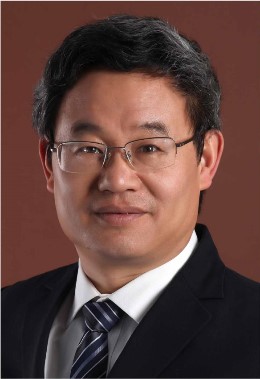


郑利民 教授
国家教育部特聘教授
国家杰出青年基金获得者
国务院学位委员会学科评议组成员

简历:
1984年毕业于上海医科大学并在附属华山医院任临床医生。1994年获荷兰Leiden大学博士;1999年被瑞典国家研究院(VR/MFR)聘为助理教授。多年来一直从事人髓系免疫细胞的研究,在国际期刊发表论文80余篇,总影响因子700余点。2002年回国后,以肝癌为主要模型,研究人体肿瘤组织中免疫细胞与癌细胞之间的相互作用和调控机制,以及它们作为临床免疫分期和治疗的可行性。作为通讯作者的论文已于近年发表在J Exp Med., J Clin Invest,PNAS和 Hepatology等期刊。先后获国家基金委杰青、重点和卫生部重大专项等资助。培养的研究生获 “全国百篇优秀博士学位论文”。 作为第一完成人获2014年“国家自然科学 二等奖”, 2013年“教育部优秀科研成果一等奖”和“广东省科学技术一等奖”。入选2014年“广东特支计划杰出人才”(南粤百杰)。2016年获得“广东省丁颖科技奖”。2015至2019年连续入选Elsevier 发布的“中国高被引学者(most cited Chinese researcher)”(医学组)榜单。
研究方向:
组织免疫微环境;巨噬细胞生物学;肿瘤分子分型和免疫治疗
研究背景和主要研究内容:
肿瘤是癌细胞在适宜“土壤”(组织微环境)中生长的结果。由免疫细胞及其相关因子等组成的局部微环境可显著影响甚至决定肿瘤进展。与动物模型不同,人实体瘤是癌细胞与免疫系统长期“共进化”的结果,并可利用组织的区域特性来形成独特微环境。我们以临床样本未基础,结合实验模型,主要开展以下几个方面的工作:
1. 以单核巨噬细胞和MDSC等髓系细胞为核心,系统研究肿瘤对这些髓系细胞产生,以及它们在组织中的聚集、分化/表型的影响与调控机制,以及免疫微环境对肿瘤血管生成和转移的影响与机制。
2. 肿瘤细胞的表观遗传调控以及组织局部代谢对浸润免疫细胞亚群、功能与表型的调控机制及其临床意义。
3. 综合评价肝癌组织免疫状态对疾病转归和免疫应答的影响;建立可用于临床判断肝癌进展/预后的预测模型;探讨个体化免疫干预的可行性。
主要在研项目:
● NSFC重大研究计划集成项目 脾脏微环境对肿瘤诱导髓系细胞生成和免疫特性的调控与机制(91842308);300万元;2019-2022
● NSFC重点项目巨噬细胞在肿瘤组织中增殖的调控机制与临床意义(81730044);293万元;2018-2022
● 国家重点研发计划 组织免疫(炎性)微环境调控肿瘤发生和发展的机制(2017YFA0505803);231万元;2017-2022
代表性论文:
1) Wang J#, Wang Y#, Chu Y, Li Z, Yu XJ, Huang ZJ, Xu J, Zheng L. Tumor-derived adenosine promotes macrophage proliferation in human hepatocellular carcinoma. J. Hepatol. 2020 Online ahead of print (IF: 20.6)
2) Chen J#, Sun HW#, Yang YY, Chen HT, Yu XJ, WuWC, Xu YT, Jin LL, W XJ, Xu J, Zheng L. Reprogramming immunosuppressive myeloid cells by activated T cells promotes the response to anti-PD-1 therapy in colorectal cancer. Signal Transduct Target Ther. 2020 In Press. (IF: 13.5)
3) Sun HW#, Chen J#, Wu WC, Yang YY, Xu YT, Yu XJ, Chen HT, Wang Z, Wu XJ, Zheng L. Retinoic acid synthesis deficiency fosters the generation of polymorphonuclear myeloid-derived suppressor cells in colorectal cancer. Cancer Immunol Res, 2020 Online ahead of print. (IF: 8.7)
4) Wu C#, Lin J#, Weng Y, Zeng DN, Xu J, Luo S, Xu L, Liu M, Hua Q, Liu CQ, Li JQ, Liao J, Sun C, Zhou J, Chen MS, Liu C, Guo Z, Zhuang SM, Huang JH, Zheng L. Myeloid signature reveals immune contexture and predicts the prognosis of hepatocellular carcinoma. J Clin Invest. 2020;130(9):4679-4693 (IF: 11.9)
5) Xiao G#, Jin LL#, Liu CQ, Wang YC, Meng YM, Zhou ZG, Chen J, Yu XJ, Zhang YJ, Xu J, Zheng L. EZH2 negatively regulates PD-L1 expression in hepatocellular carcinoma. J. Immunother. Cancer 2019;7(1):300 (IF: 9.9)
6) Wu WC#, Sun HW#, Chen J, OuYang HY, Yu XJ, Chen HT, Shuang ZY, Shi M, Wang Z, Zheng L. Immunosuppressive Immature Myeloid Cell Generation Is Controlled by Glutamine Metabolism in Human Cancer. Cancer Immunol. Res. 2019;7(10):1605-1618 (IF: 8.7)
7) Wu C, Ning H, Liu M, Lin J, Luo S, Zhu W, Xu J, Wu WC, Liang J, Shao CK, Ren J, Wei B, Cui J, Chen MS, Zheng L. Spleen mediates a distinct hematopoietic progenitor response supporting tumor-promoting myelopoiesis. J. Clin. Invest. 2018;128(8):3425-3438 (IF: 11.9)
8) Chen DP, Ning WR, Li XF, Wei Y, Lao XM, Wang JC, Wu Y, Zheng L. Peritumoral monocytes induce cancer cell autophagy to facilitate the progression of human hepatocellular carcinoma. Autophagy 2018;14(8):1335-1346 (IF: 9.8)
9) Xu J#, Liang J#, Meng YM#, Yan J, Yu XJ, Liu CQ, Xu L, Zhuang SM, Zheng L. Vascular CXCR4 expression promotes vessel sprouting and sensitivity to sorafenib treatment in hepatocellular carcinoma. Clin Cancer Res 2017;23(15):4482-4492 (IF: 10.1)
10) Li XF, Chen DP, Ouyang FZ, Chen MM, Wu Y, Kuang DM, Zheng L. Increased autophagy sustains the survival and protumorigenic effects of neutrophils in human cancers. J. Hepatol. 2015; 62: 131-9. (IF: 20.6)
11) Kuang DM, Xiao X, Zhao Q, Chen MM, Li XF, Liu RX, Wei Y, Ouyang FZ, Chen DP, Wu Y, Lao XM, Deng H, and Zheng L. B7-H1-expressing antigen-presenting cells mediate polarization of pro-tumorigenic Th22 subset. J. Clin. Invest. 2014; 124:4657-67. (IF: 11.9)
12) WC Wu, HW Sun, HT Chen, J Liang, XJ Yu, C Wu, Z Wang, and L Zheng. Circulating hematopoietic stem and progenitor cells are myeloid-biased in cancer patients. Proc. Natl. Acad. Sci. USA. 2014; 111: 4221-6. (IF: 9.4)
13) Wu Y, Kuang DM, Pan WD, Wan YL, Lao XM, Wang D, Li XF, Zheng L. Monocyte /Macrophage-elicited NK cell dysfunction in Hepatocellular carcinoma is mediated by CD48/2B4 interactions. Hepatology 2013; 57:1107-16. (IF: 14.7)
14) Xu J#, Ding T#, He Q#, Yu X, Wu W, Jia W, Yun J, Zhang Y, Shi M, Shao C, Pan WD, Yin X, Min J, Zhuang SM, Zheng L. In Situ molecular signature predict early recurrence in Hepatitis B virus-related hepatocellular carcinoma. J. Hepatol. 2012; 57: 313-21. (IF: 20.6)
15) Wu Y, Kuang DM, Pan WD, Wan YL, Lao XM, Wang D, Li XF, Zheng L. Monocyte /Macrophage-elicited NK cell dysfunction in Hepatocellular carcinoma is mediated by CD48/2B4 interactions. Hepatology 2013; 57:1107-16. (IF: 14.7)
16) Kuang DM, Zhao Q, Wu Y, Peng C, Wang J, Xu Z, Yin XY, Zheng L. Peritumoral neutrophils link inflammatory response to disease progression by fostering angiogenesis in hepatocellular carcinoma. J. Hepatol. 2011; 54:948-55. Editorial Comment in J. Hepatol. 2011; 54:853-5. (IF: 20.6)
17) Kuang DM, Peng C, Zhao Q, Wu Y, Chen MS, Zheng L. Activated monocytes in peritumoral stroma of hepatocellular carcinoma promote expansion of memory Th17 cells. Hepatology 2010;51:154-164. (IF: 14.7)
18) Zhang JP, Yan J, Xu J, Pang XH, Chen MS, Li L, Wu C, Li SP, Zheng L. Increased intratumoral IL-17-producing cells correlate with poor survival in hepatocellular carcinoma patients. J. Hepatol. 2009;50:980-989 (IF: 20.6)
19) Kuang DM, Zhao Q, Peng C, Xu J, Zhang JP, Wu C, Zheng L. Activated monocytes in peritumoral stroma of hepatocellular carcinoma foster immune privilege and disease progression through PD-L1. J. Exp. Med. 2009;206(6):1327-37 (IF: 11.7)
Kuang DM, Wu Y, Chen N, Cheng JS, Zhuang SM, Zheng L, Tumor-derived hyaluronan induces formation of immunosuppressive macrophages through transient early activation of monocytes. Blood 2007;110:587